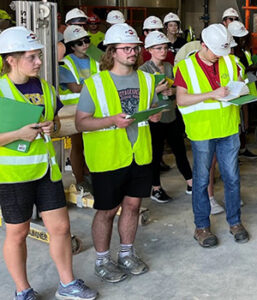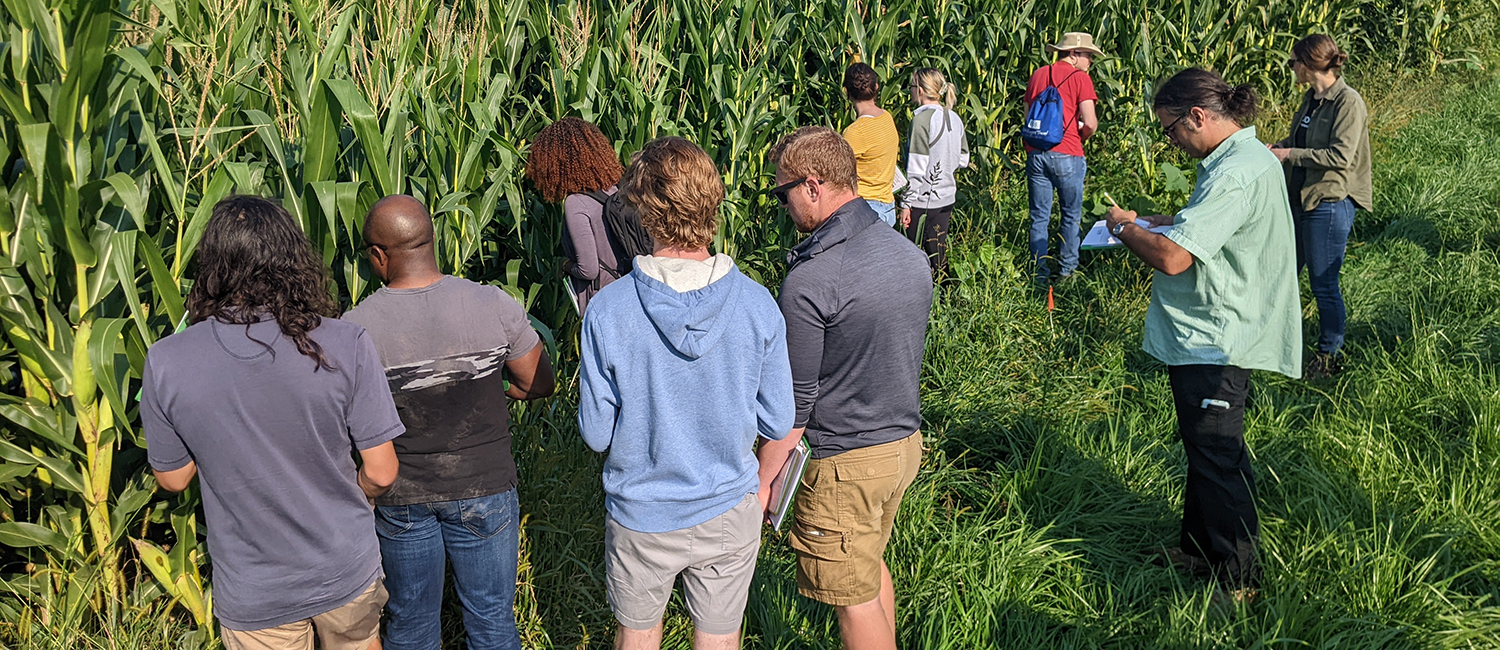Dane Friis is an undergraduate from Verona, Wis., who is majoring in Land Use Management and Planning at UW-Stevens Point. When he graduates in spring 2023, Friis hopes to go into GIS analysis or work for a land trust.
In September 2022, he was one of 21 students who participated in a pilot regional field trip, “Exploring the Ag-Water Nexus in Wisconsin.” The three-day field experience provided students with an overview of how water and agriculture intersect in different regions of the state.
Here’s what Friis said about his experience.

Why did you choose to participate in this field trip course?
I chose to take part in this field trip as land use planning is very connected to groundwater quality/quality and soil conservation. I also chose to participate because agriculture is very connected to land use planning.
Was there anything that surprised you or was particularly interesting?
It was interesting to hear about different types of crops and how the farmers dealt with issues the crops may have while growing. I was surprised to see that a lot of the management practices that are preached (conservation easements, CRPs, etc.) were not as widely implemented as I personally would have like to have seen. The cattle rancher in southwest Wisconsin, on the other hand, had a textbook conservation easement along the stream banks of his ranch. He took great pride in conserving natural resources on his farm and how well his management practices are at conserving stream banks on the ranch. He was also very proud of the native brook trout habitat he has on his ranch.
What were the benefits to seeing various regions of Wisconsin?
It was advantageous to see multiple parts of Wisconsin because of how diverse the state’s landscape is. Seeing the different soil and water issues across the state gave me and other future natural resource managers a better feel for how certain issues carry over and differ from region to region.
Were there benefits to meeting and interacting with faculty and students from other UW schools?
I believe that there was a benefit to attending the trip with students from other UW schools. Every school offers something different, in terms of natural resources. It was particularly interesting talking to agronomy majors from UW-Platteville. Their insight was interesting as it helps me understand what farmers need to grow viable crops while implementing management practices.
How will taking this course help you attain your career goals?
The information I learned will help me understand how to effectively manage a sustainable farm. The social aspect of sustainability covered during the trip especially will help me in the future.
The “Exploring the Ag-Water Nexus in Wisconsin” field experience was developed by the Wisconsin Agriculture-Water Nexus Network, using funding from the Freshwater Collaborative of Wisconsin. The pilot was offered through UW-Green Bay, UW-Madison, UW-Platteville and UW-Stevens Point. Faculty are now developing multiple one-credit hybrid courses that each focus on a different area of the state, which will be offered in spring 2023 at UW-Green Bay, UW-Madison, UW-Platteville, UW-River Falls, UW-Stevens Point, UW-Stout. View course descriptions.
Read more about the Wisconsin Agriculture-Water Nexus Network

